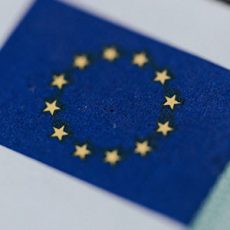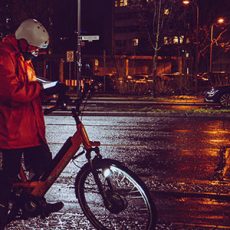
Should it be of interest, we are reproducing an article written by our president, Ricardo Rodríguez Contreras, in the Spanish newspaper El Economista, about our ‘Save your zone’ campaign.
All you have to do is walk down the shopping streets of any Spanish city to verify a reality: the lock downs and restrictions to fight the pandemic have put nearby businesses on the edge of a cliff. According to the Spanish Trade Confederation (CEC), some 67,500 establishments, 15% of the total, have already closed forever. And in the short term, almost 50,000 more could fall, estimates the same source. One in four businesses could disappear in just one year.
The most obvious consequence of this problem has to do with work: quite simply, many families have no idea how they will earn a living from now on. But there are more consequences, and they have a wider impact. The destruction of the majority of nearby businesses is also a tear in the social and economic fabric of our cities. We lose quality employment, tax revenues, street activity and, in many cases, sentimental heritage.
This is why from the European Association for Digital Transition (EADT), a citizens’ organization that promotes the EU’s digital sovereignty, we have launched a campaign these past weeks in the four leading economies of the Union – Spain, France, Italy and Germany. With the slogan ‘Save your zone’ we want to defend nearby businesses from the model, increasingly present and overbearing, of the e-commerce giants.
For many of these businesses, this Christmas is not just the time of the year with the most sales; this Christmas, their survival is at stake. That is why we have written to hundreds of mayors across the European Union (EU) to call on them to set an example and make a clear and public commitment: to ask their citizens to buy at local businesses instead of with the non-European e-commerce giants. It is a step that has already been taken by mayors of important cities such as Barcelona and Paris, and more recently, because of our campaign, by José Antonio Díez, the mayor of León.
We are all aware that the technological and digital revolution is producing changes and disruptions in the economy, the business world, labour relations and forms of consumption. For the EADT, what is happening in business is representative of the unwanted effects of a digitalization process that is savage and unfair and, in the end, lacking equal rules for everyone. There is growing concern about the enormous power of non-European platforms that operate with a tax and labour model that is highly-debatable and which, like Atilla the Hun, crush everything in their path, abusing their market dominance and cutting off local innovation.
In addition to much of our nearby urban businesses, citizens, businesses and EU Member States are losing control over our data and the ability to innovate in the digital environment, appropriated by technological giants with more financial power than many States on the planet.
By promoting debate and building partnerships, the EADT supports strengthening the EU’s leadership and strategic autonomy in the digital field. Because perhaps the only positive thing the pandemic has brought has been an acceleration of the incipient shaping of European digital sovereignty, as many States demand, and is reflected in the recent proposal packages drawn up by the European Commission.
European citizens need to regain actual control over our data, businesses need to be able to develop technologically and compete on equal terms, and governments need to be able to enforce their laws. And it is in this context where the battle for local businesses means committing to a digital transition that is fair and united, inclusive and ethical, which does not have to be at odds with being competitive. It is about a transition that respects basic European standards and values.
This is what is at stake when we support local businesses this Christmas. We have to react. Before it is too late and one day we go out on the street and find ourselves with cities, with societies, that reflect the interests and cultures of others.




